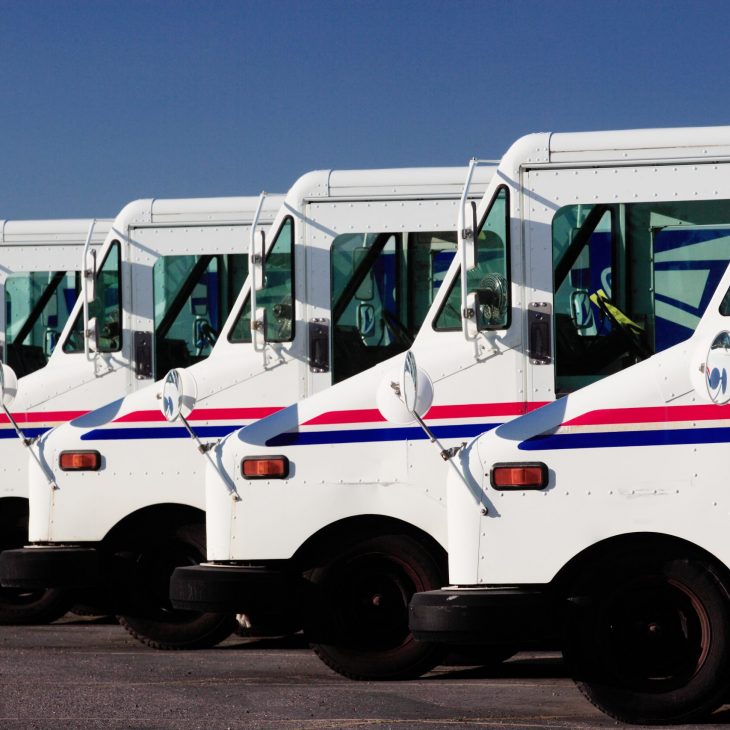Employers Accommodate Workers’ Time Off for Worship? The Supreme Court Will Weigh In
February 21, 2023

(The Conversation) — Imagine you own a business with a few dozen employees. One, who is Muslim, asks if she can use a meeting room a few times a day for brief prayers – one of the five pillars of Islam. Another, who observes the Jewish Sabbath, says he cannot work on Saturdays. Yet another, a Christian, requests to no longer work on Sundays, one of the shop’s busier days.
The U.S. Supreme Court will soon address the extent to which employers must accommodate employees, if at all, in similar circumstances.
A far-reaching federal statute, Title VII, requires employers to make “reasonable accommodations” for the religious beliefs and practices of employees. Yet what exactly that means has been unclear for decades. This issue comes to a head on April 18, 2023, when the Supreme Court will hear oral arguments in Groff v. DeJoy. Gerald Groff, a Christian postal worker, quit and sued the U.S. Postal Service, alleging it failed to accommodate his religious obligation not to work on Sundays.
The case, which could have wide-reaching impact, is focused on two questions. The first is whether the court should abandon an existing standard that says employers can refuse religious accommodations that would impose more than a minimum, or “de minimis,” cost on their businesses.
Second, the court will decide whether an employer may prove that a religious accommodation imposes an “undue hardship” by showing the burden it imposes on other workers, rather than the business itself.
Sunday deliveries
Groff’s “religious beliefs dictate that Sunday is meant for worship and rest,” according to court documents. He went to work for the USPS in Pennsylvania in 2012. Controversy began a year later, when USPS signed an agreement with the online retail giant Amazon to make deliveries throughout the week, including on Sundays. The success of Sunday deliveries was critical to the postal service, according to court filings.
Groff was initially exempted from working on his Sabbath, as long as he could get someone to cover his shifts. However, supervisors told him that he would have to be available during the peak holiday season.
Groff then transferred to another post office in the region that did not deliver on Sundays. However, it eventually began to, and Groff did not report to work on at least 24 Sundays. Also, he rejected the postmaster’s offer to permit him to attend religious services on Sunday mornings and report to work afterward, an accommodation similar to what the postmaster provided to other employees.
Groff contacted the Equal Employment Opportunity Commission, which agreed that, at first appearance, it looked as though he might have had a claim for failure to accommodate but was not subjected to discrimination.
After facing discipline and workplace tension, and having filed two more complaints with the commission, Groff resigned in January 2019, alleging that officials had failed to accommodate his religious beliefs.

The Good Brigade/Digital Vision via Getty Images
From the post office to the courts
Groff then filed suit in federal court in Pennsylvania under Title VII of the Civil Rights Act, a far-reaching federal statute that forbids workplace discrimination on the basis of religion, race, color, sex and national origin. However, the court held that USPS officials had offered reasonable accommodations.
Groff appealed, but in a 2-1 judgment, the 3rd Circuit affirmed in favor of USPS, relying on two Supreme Court cases.
In the first case that the 3rd Circuit relied on, Trans World Airlines v. Hardison, the Supreme Court had ruled that employers need not accommodate the religious needs of employees if doing so would require them “to bear more than a de minimis cost.” Ever since this 1977 decision, employers have generally used the Hardison decision to refuse accommodations deemed more than “de minimis.”
In the second case that the 3rd Circuit cited, Ansonia Board of Education v. Philbrook, the Supreme Court interpreted Title VII as meaning that once employers offer an employee reasonable accommodations – even if not the requested accommodations – officials are not obligated to do anything else if the original request would have created undue hardships on other workers.
The Supreme Court’s turn
Groff’s case highlights the tension between Title VII’s actual words – which require employers to make “reasonable accommodations” for time away from duties – and the court’s interpretation of them in the Hardison case, which does not require employers to bear more than “de minimis” costs. Groff’s attorneys are also asking the court to settle whether costs to other employees – such as having to cover more Sunday shifts – count as “undue hardship” on the business itself.
In advance of the oral arguments, four members of the Supreme Court appear to be skeptical of the “de minimis” interpretation in Hardison. In a decision for another case, Justice Samuel Alito, joined by Justices Clarence Thomas and Neil Gorsuch, criticized Hardison as inadequate, writing that “de minimis” “does not represent the most likely interpretation of the statutory term ‘undue hardship.’”
In yet another case, Gorsuch agreed that the Hardison rationale “dramatically revised – really, undid – Title VII’s undue hardship test.” Under its definition, “the company had no obligation to provide [the] requested accommodation because doing so would have cost the company something (anything) more than a trivial amount.”
The court has been supportive of religious freedom claims in its most recent cases, leading some analysts to anticipate change is in the offing.
Regardless of how the Supreme Court rules in Groff, though, this much is reasonably certain: The justices will usher in a new era of employer-employee relations with regard to religious accommodations.
Charles J. Russo is the Joseph Panzer Chair in Education in the School of Education and Health Sciences and Research Professor of Law at University of Dayton. This article is republished from The Conversation under a Creative Commons license. Read the original article.
Share
Related Articles
American Civic Life
Higher Education
American Civic Life



